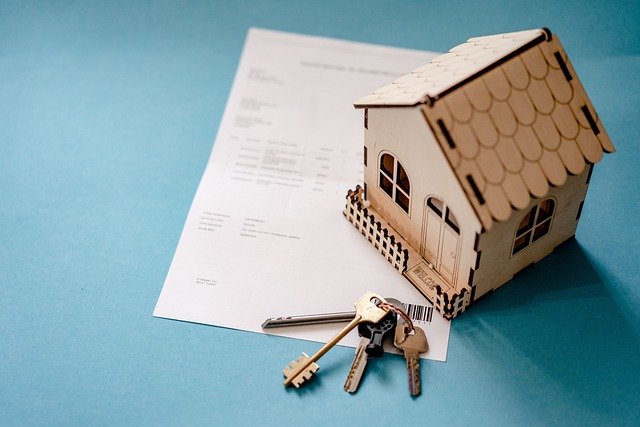Understanding Mortgages: Types, Structure, and Key Considerations
A mortgage is a crucial financial tool that enables millions of Americans to achieve homeownership. This long-term loan, secured by real estate property, provides a pathway to purchase homes without paying the full price upfront. Let's delve into the intricacies of mortgages, exploring their types, structure, and essential factors to consider when navigating the home-buying process.

What exactly is a mortgage loan?
A mortgage loan is a financial agreement between a borrower and a lender, typically a bank or credit union, where the lender provides funds to purchase a property. The borrower agrees to repay the loan over a set period, usually 15 to 30 years, with interest. The property itself serves as collateral, meaning if the borrower fails to make payments, the lender can foreclose on the home to recoup their investment.
What are the main types of mortgages available?
There are several types of mortgages designed to meet different borrower needs:
-
Conventional Mortgages: These are not backed by government agencies and typically require higher credit scores and down payments.
-
FHA Loans: Insured by the Federal Housing Administration, these loans offer lower down payments and are more accessible to borrowers with lower credit scores.
-
VA Loans: Available to eligible veterans and active-duty service members, these loans often require no down payment.
-
USDA Loans: Designed for rural homebuyers, these loans are backed by the U.S. Department of Agriculture and may offer zero down payment options.
-
Jumbo Loans: For high-value properties exceeding conforming loan limits, these mortgages typically have stricter qualification requirements.
How is a mortgage structured?
The structure of a mortgage consists of several key components:
-
Principal: The original amount borrowed to purchase the home.
-
Interest: The cost of borrowing money, expressed as a percentage of the loan amount.
-
Taxes: Property taxes are often included in mortgage payments and held in escrow.
-
Insurance: Homeowners insurance and, if applicable, private mortgage insurance (PMI) are typically part of the payment structure.
These components are often referred to as PITI (Principal, Interest, Taxes, and Insurance) and make up the total monthly mortgage payment.
What are fixed-rate vs. adjustable-rate mortgages?
Fixed-rate mortgages maintain the same interest rate throughout the loan term, providing predictable monthly payments. This stability makes budgeting easier and protects borrowers from potential interest rate increases.
Adjustable-rate mortgages (ARMs) start with a fixed rate for a specified period, after which the rate can fluctuate based on market conditions. ARMs often offer lower initial rates but carry the risk of higher payments if interest rates rise.
How do credit scores and down payments affect mortgage terms?
Credit scores and down payments play a significant role in determining mortgage terms:
-
Credit Scores: Higher credit scores generally lead to better interest rates and loan terms. Lenders view borrowers with higher scores as less risky.
-
Down Payments: Larger down payments can result in lower interest rates and may eliminate the need for private mortgage insurance. Conventional loans typically require a minimum of 3% down, while FHA loans may accept as little as 3.5%.
-
Debt-to-Income Ratio: This factor, which compares monthly debt payments to income, is crucial in determining loan eligibility and terms. A lower ratio is generally more favorable to lenders.
What additional costs should borrowers consider when getting a mortgage?
When obtaining a mortgage, borrowers should be aware of several additional costs:
-
Closing Costs: These typically range from 2% to 5% of the loan amount and include fees for appraisals, title searches, and attorney services.
-
Private Mortgage Insurance (PMI): Required for conventional loans with less than 20% down payment, this insurance protects the lender if the borrower defaults.
-
Homeowners Association (HOA) Fees: If applicable, these recurring fees cover community amenities and services.
-
Maintenance and Repairs: Homeowners should budget for ongoing maintenance and potential repairs not covered by insurance.
-
Property Taxes: These can vary significantly based on location and property value.
Comparing Popular Mortgage Lenders
When choosing a mortgage lender, it’s essential to compare options. Here’s a brief overview of some popular mortgage lenders in the United States:
| Lender | Types of Mortgages Offered | Minimum Credit Score | Notable Features |
|---|---|---|---|
| Wells Fargo | Conventional, FHA, VA, Jumbo | 620 | Wide range of products, online application |
| Rocket Mortgage | Conventional, FHA, VA, Jumbo | 580 | Quick online process, smartphone app |
| Bank of America | Conventional, FHA, VA, Jumbo | 620 | Preferred Rewards program for existing customers |
| Chase | Conventional, FHA, VA, Jumbo | 620 | DreaMaker mortgage with 3% down payment |
| Quicken Loans | Conventional, FHA, VA, Jumbo | 580 | YOURgage flexible-term mortgages |
Prices, rates, or cost estimates mentioned in this article are based on the latest available information but may change over time. Independent research is advised before making financial decisions.
In conclusion, understanding the intricacies of mortgages is crucial for potential homebuyers. By familiarizing yourself with various mortgage types, structures, and key considerations, you can make more informed decisions when embarking on your homeownership journey. Remember to carefully compare lenders, terms, and associated costs to find the mortgage that best suits your financial situation and long-term goals.
The shared information of this article is up-to-date as of the publishing date. For more up-to-date information, please conduct your own research.




